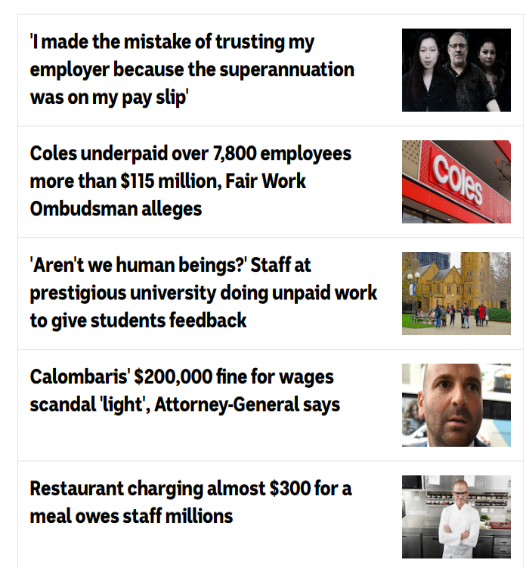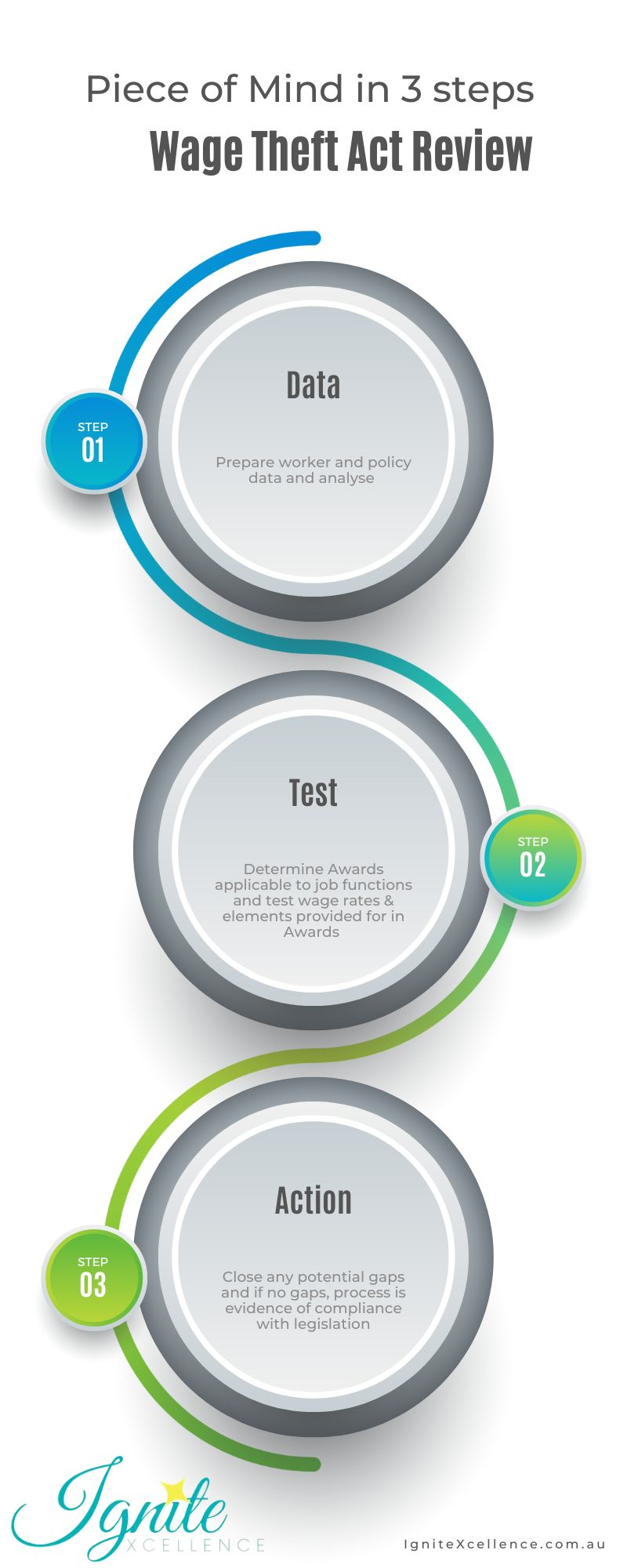In 2020, PwC estimated around 13 per cent of Australia's total workforce were affected by underpayment, with higher rates in certain industries, such as the hospitality sector.
Wage theft is a crime in Queensland and Victoria, which means employers in those states can face criminal charges and convictions, and up to 10 years in jail.
One of the Federal Government's election promises was to Legislate making wage theft a criminal offence at a national level and whilst the promise is easier said than done, if legislation passes through both houses of parliament, this promise will be considered delivered. In an update in February 2023, the Minister for Employment and Workplace Relations, Tony Burke, said the legislation is planned for the second half of 2023.
Criminal offence or not, legally workers must be paid at least their minimum pay rates and entitlements in Australia. Fair Works says underpayments often happen because of a mistake or payroll error and fixing it quickly and getting it right in future is important. Not following the law can lead to serious penalties.
And in Australia we do not make it simple as in addition to the Fair Works Act and National Employment Standards, most employees also work under a Modern Award, and some under an Enterprise Agreement, which details the minimum legal rate of pay and other allowances and provisions such a worker is entitled to. Rather complicated as employers need to have multiple checkpoints to make sure they remain compliant.
“I didn’t know your Honour” is not a good enough defence either so to have certainty it is important for an organisation to conduct a review on applicable awards, minimum wage rates, allowances, additional provisions applicable, etc. ensuring your company’s practices do not contradict the legislation.
 Lexology reported on Australia’s First Criminal Wage Theft Charges in an article and shared that the there are some defences for employers who have exercised due diligence to ensure compliance and some steps quoted by them for due diligence include:
Lexology reported on Australia’s First Criminal Wage Theft Charges in an article and shared that the there are some defences for employers who have exercised due diligence to ensure compliance and some steps quoted by them for due diligence include:
- be aware of changes to minimum pay and entitlements (including changes to instruments such as modern awards) and update payroll systems;
- regularly review and audit your company’s pay compliance;
- actively listen and respond to queries from your workers about their pay and entitlements;
- maintain clear decision-making lines to determine who is responsible for authorising payments and entitlements; and
- seek assistance to manage actual (or suspected) underpayments.
And this is not a once-off activity dear business owners… Award rates generally change every year, and the Fair Work Commission may vary an award at any time so you should pencil this review into your annual calendar and consider what procedures you adopt to support you in ongoing maintenance of compliance.
So what, what now you might ask? Ask yourself two simple questions:
- Do you know what Modern Awards apply to your organisation and which workers what Award apply to?
- Can you articulate if you pay under or over the minimum wage as per the Award and worker’s job classification considering all provisions of the relevant Award?
If you cannot answer in the affirmative, perhaps its time for a little “DTA” due diligence. Three easy steps, “Data-Test-Action” can kick start a process to fulfil your legal obligations as an employer in Australia.
Contact me for a quotation to support you at nicolette@ignitexcellence.com.au.


